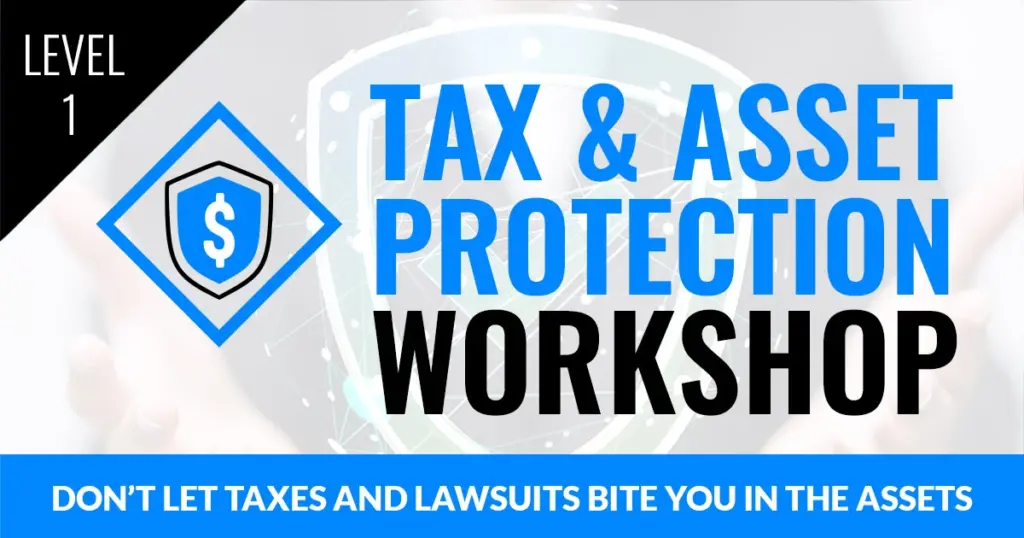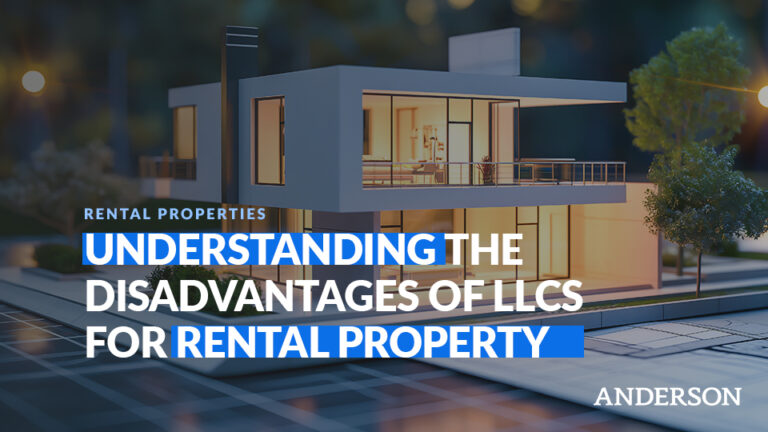Updated October 7, 2021
Taxes are as certain as death, and sadly, sometimes some people can’t pay their taxes. While this is unfortunate, one man’s misfortune is another man’s opportunity. This is where tax lien investing comes in.
Pros and Cons of Tax Lien Investing
PROS
- Low Capital Startup
- Steady Returns
- Potential to Obtain Real Estate
CONS
- One-time Payout
- Responsible for Subsequent Liens
- Local Jurisdiction Laws
- Competitive Auctions.
A tax lien happens when someone cannot pay their property taxes to the government. The local taxing authority will place a lien on the property, meaning the delinquent property cannot be refinanced or sold until the owner pays their owed taxes. This property tax lien is then sold off in tax lien auctions. It is during a tax lien sale that delinquent tax burdens are sold to bidding investors, who will attempt to collect the delinquent property tax.
A tax lien investor thereby becomes the lienholder and retains the right to collect the owed taxes, plus interest—a lucrative opportunity for the lienholder. In the meantime, the local taxing authority can quickly recoup their losses (or at least a percentage of them). As they say, a bird in the hand is worth two in the bush, and the government is happy to collect what they can while passing the lienholder status on to someone who is willing to take the risk.
Technically speaking, the government will eventually reserve the right to claim a property if taxes continue to go unpaid. Uncle Sam is not really interested in managing rental properties, so the government will auction the property off to someone else, such as an individual looking for real estate investing opportunities through a tax sale process. In most cases, the government will sell the delinquent tax lien to someone else. That way, if the taxes continue to go unpaid, the new lienholder can immediately claim the property.
This doesn’t mean the lienholder can simply kick out the current resident and do whatever they want with the property. However, tax lien investing can be a win-win for the investor and the taxing authority: they both get cash, and the investor has the opportunity to collect more money. And, if the cash goes unpaid, a property to own.
What is Tax Lien Investing?
Generally, a tax lien property is listed in a local newspaper, along with other delinquent properties. This gives investors the opportunity to bid on the lien at auction.
This provides the opportunity for a savvy investor to purchase the right to collect the unpaid back taxes from the property owner. If the property owner does not end up paying their taxes, the individual who purchased the tax lien will take ownership of the property, instead of the government. The foreclosure process is not a simple one, and local governments are happy to pass the potential headache onto a real estate investor who is willing to take the risk, should the taxes continue to go unpaid.
It’s important to note that not every state offers investors the opportunity to participate in a tax lien sale. In some states, a property with delinquent taxes will go right to the tax sale process. In the states that do offer real estate investors the opportunity to purchase tax liens, around 33 percent of the $14 billion in unpaid taxes were sold off (in 2017, as an example). In times marked by an economic downturn, the number of properties going through the tax lien process can skyrocket, as homeowners are unable to pay property taxes.
Tax lien investing may seem like a golden opportunity, and it certainly can be for investors who know what they are doing. But like any type of investing activity, it has its pros and cons:
Pros of Tax Lien Investing
Low Capital Startup
Tax lien investing doesn’t require much capital, especially if you’re looking at a singular property. You just need to pay a premium to purchase the debt of back taxes owed by the property owner.
In many cases, you will have to outbid other investors by offering to pay a higher premium. This premium is usually less than the actual amount of taxes owed, but it’s up to the investor to decide if the risk is worth the collection reward. In most places, property taxes are around one percent of the property’s value. That means a tax lien on a $200k property will probably not cost more than $2k (and even less if nobody outbids you).
Steady Returns
Tax lien investors make their money on the interest payments they collect when the homeowner pays back the taxes they owe. In some places, these interest rates are as high as 18 percent, which is more than the average credit card interest rate.
Property owners can pay what they owe all at once, or they can go on a payment plan ranging from one to three years. This gives the purchaser of the tax lien a nice source of constant revenue.
In the above example, someone with an outstanding tax debt of $4k (two years of back taxes) would be providing a tax lien holder with potentially up to $720 in interest payments, working with the 18 percent interest rate we mentioned earlier.
Potential to Obtain Real Estate
One of the greatest benefits to tax lien investors is the potential to obtain a new property for their real estate portfolio, without having to pay its market value. If the homeowner cannot pay their taxes or settle the debt that prompted the lien, the holder of the lien can trigger foreclosure proceedings and claim the property.
This is a strategy that many real estate investors use to acquire undervalued properties or distressed properties. And if the property owner does pay their debts, they will still make a profit in the form of interest. It’s a win-win situation for the tax lien investor.
Cons of Tax Lien Investing
One-time Payout
There are some cons to tax lien investing. For one, tax lien investing could be looked at as a one-trick pony. Once the lien is paid, the investor must move on and look for a new investment.
Of course, if the property owner is still in default, the lien holder will obtain the property, which could become a recurring source of income.
Responsible for Subsequent Liens
Someone who purchases a tax lien may find themselves entangled with other liens on the property, especially if they end up claiming the property in the event that the debt goes unpaid.
Imagine the thrill of getting a rental property for the price of a tax lien premium, only to discover that several other creditors have claims against the property in question. This could lead to lots of legal battles, which is why it’s important to work with lawyers and tax advisors who understand things like deed vs title. and can assist with performing due diligence on a property.
Local Jurisdiction Laws
The laws around tax lien investing (and related issues—like foreclosing on tenants) are not uniform across states that offer investors the ability to participate in a tax lien sale. They aren’t even uniform from county to county. Without a strategic approach to tax lien investing, you may run afoul of local landlord tenant rights.
It’s important to work with a legal counselor who is familiar with creative real estate investing processes to help you avoid costly mistakes that make tax lien investing no longer worth the effort.
For example, what happens if the taxes go unpaid and the property goes into foreclosure? You will have to know the ins and outs of the foreclosure process in the area the property is located, otherwise you could face a lawsuit.
Competitive Auctions
Given that tax liens are often sold at auction, competing bidders will bid up the premium and bid down the interest rate that can be collected on the unpaid taxes. The winner of the auction will be the real estate investor who is paying the highest premium and getting the lowest interest rate in return.
Just like a game of poker, it’s good to know when to hold ’em…and when to fold ’em—that is, when to walk away from an opportunity that has been bid far beyond its potential value, especially when the risk is assessed. In this vein, tax lien investing is a little bit more sport-like than traditional passive ways of earning income.
How to Start Tax Lien Investing
The first thing you’ll want to do is get familiar with the area you’re considering in terms of the real estate market. Remember that one upside of becoming a lienholder is collecting the property if the debt goes unpaid, so you will need to know where that property is.
Next, you’ll want to decide what type of tax liens you want to invest in: residential or commercial. Once you’ve figured out these details out, you need to contact your local county treasurer’s office to find out when and where the next tax lien auction is being held. These auctions are often held in person, but in today’s day and age, many of have transitioned to online venues. The local county treasurer may also be able tell you when tax lien opportunities are printed in the local paper.
Most local papers publish these lists annually or semiannually. This can give you a good idea about upcoming opportunities. Remember that property taxes are generally one percent of the property value, but unpaid taxes accumulating over several years might be a more sizable amount.
You can leverage your own cash reserves or explore options like real estate crowdfunding to obtain the capital you need.
Tax Liens are a Real Estate Investment Opportunity
Tax lien investing is when someone purchases a real estate tax debt and collects the debt with interest. it has the added perk of obtaining the property if the debt remains unpaid.
While it can be a lucrative opportunity for the investor, it does require some strategic footwork. Renters and property owners do have legal protections that make tax lien investing a more involved process than just bidding to purchase a debt and waiting to collect the payment. ‘
If you’re a real estate investor looking to expand your portfolio with tax lien investing, it’s highly recommended that you confer with an expert to discuss the best ways to structure your real estate assets. Reach out to one of Anderson Advisor’s real estate experts to schedule a free consultation!
Bonus Video
Free Strategy Session with an Anderson Advisor
Receive a detailed risk assessment to assist in lowering problem areas that could wipe out all of your assets with one wrong move. Speak with an Anderson Professional Advisor to get your FREE Strategy Session. Limited-Time offer: FREE (a $750 value.)















